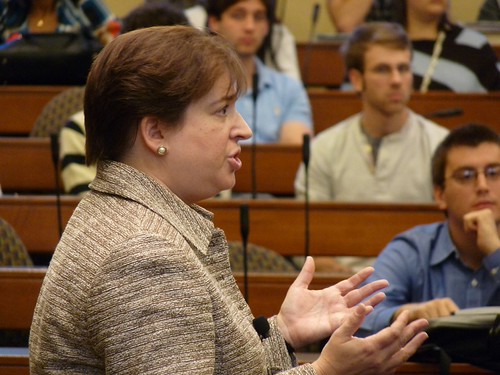 [reddit-me]I’ve started Tim Wu’s The Master Switch, a history of information industries in America; and having read Ayn Rand’s fictional Atlas Shrugged earlier this year — I wonder what Rand would make of this history of industrial warfare.
[reddit-me]I’ve started Tim Wu’s The Master Switch, a history of information industries in America; and having read Ayn Rand’s fictional Atlas Shrugged earlier this year — I wonder what Rand would make of this history of industrial warfare.
One of the motifs of Wu’s history is a theme of Rand’s novel — the extreme lengths the rich and powerful will go to in order to quash a disruptive technology. In the novel, it was Rearden steel — a metal stronger, cheaper, and better in every way than ordinary steel; in Wu’s history, it is every technological innovation from the phone to FM radio to television to the internet. In both history and the novel, the established industry used corrupt scientific experts, intimidation of suppliers,  government regulation, and the blocking of financing to prevent the disruptive technology from taking off.
government regulation, and the blocking of financing to prevent the disruptive technology from taking off.
Rand’s novel though divides the everyone into two categories: the productive who are proud, competitive, inventive individuals who make everything of worth; and the looters who are unproductive and seek to leach off of the productive using the government, religion, and pity.
Wu’s history reveals a rather different story. There is no figure in history to match the strong, creative, independent, self-made industrial magnate Dagny Taggart. There are few who resemble her brother, the weak, dependent, self-loathing James Taggart who adds nothing of worth to the business except to plead with the government to stop his competitors because their superiority is unfair,
Only rarely do the inventors become rich. More often, they are outmaneuvered by corporate titans who use every means at their disposal to win. When Edwin Armstrong invented FM radio in 1934, he had pioneered a technology that allowed for better sound quality and that could fit more stations in the same radio spectrum with less interference. David Sarnoff, a major figure in the AM radio industry, was able to prevent FM radio from gaining wide acceptance until the 1970s through a combination of public propaganda, lobbying to change obscure rules relating to radio spectrum usage, and control over the manufacturing of radio players. David Sarnoff managed a vast business empire; he was at the cutting edge of innovations in radio and television. He won not because he was weak and unproductive (as Rand’s villains are) — but because he was ruthless.
Rand’s many fans aren’t typically the creative inventors. They are the very businessmen who see moral justification for their wealth in her philosophy. But they, like the businessmen in Wu’s history, are distinguished not for their purity of motive or love of competition, but their willingness to use any means at their disposal to achieve the corporate empire they seek. Unlike the fictional heroes of Rand’s novel, they do not seek competition. They seek a final victory and end to the competition.
In the theories of Rand and many of her acolytes, capitalism is about competition. In practice, capitalism has about brute strength and force used in restraint of competition.
[Image by Ron Schott licensed under Creative Commons.]






